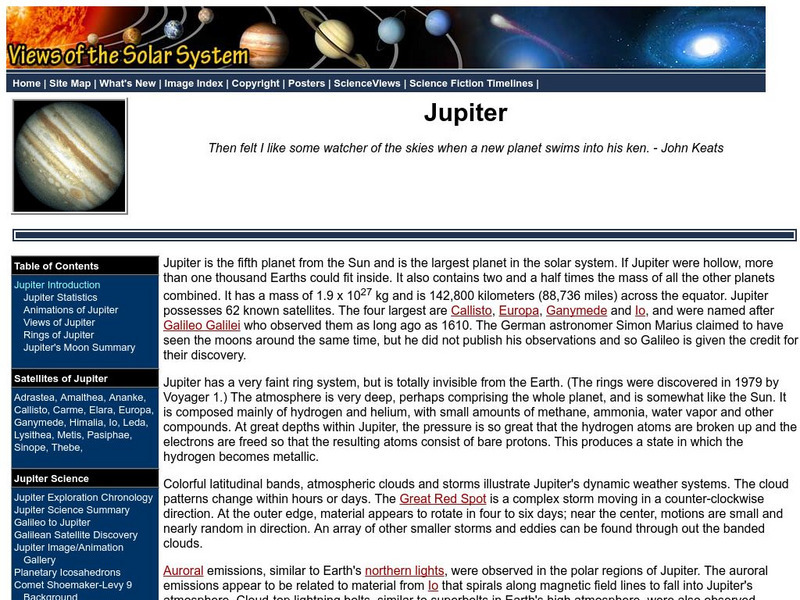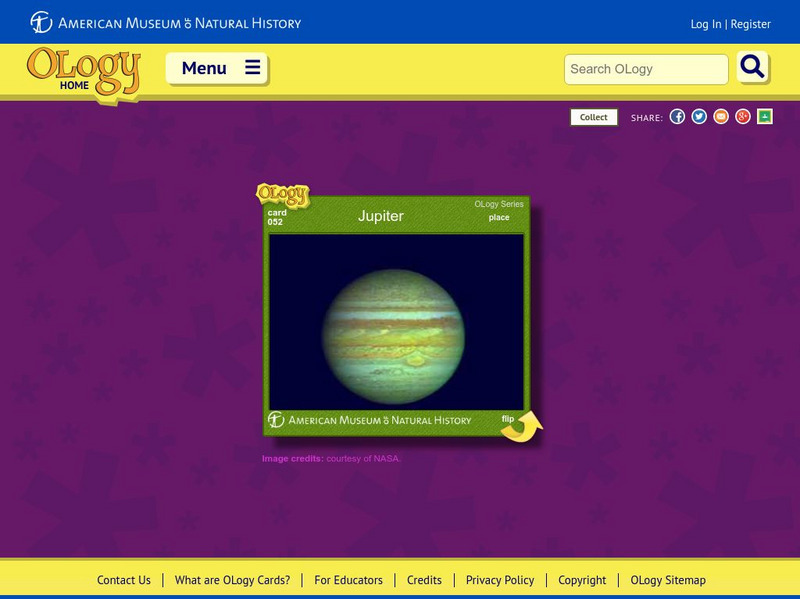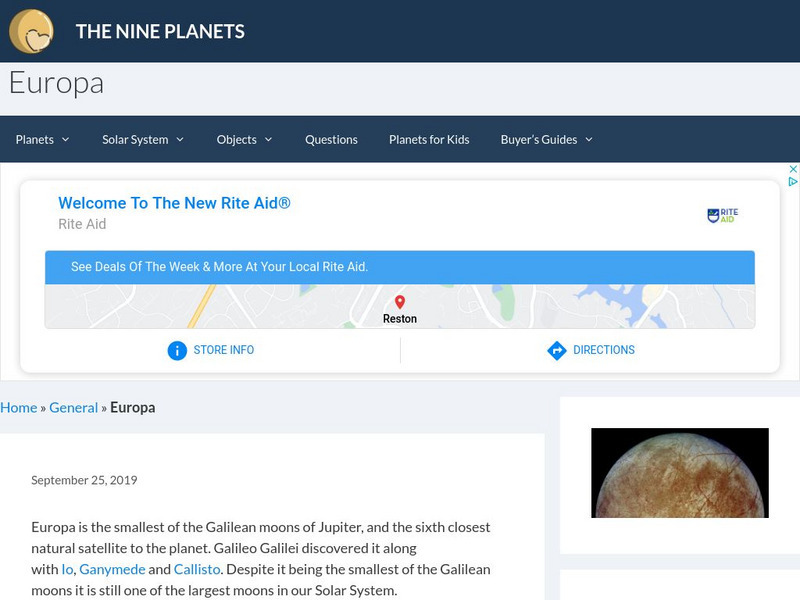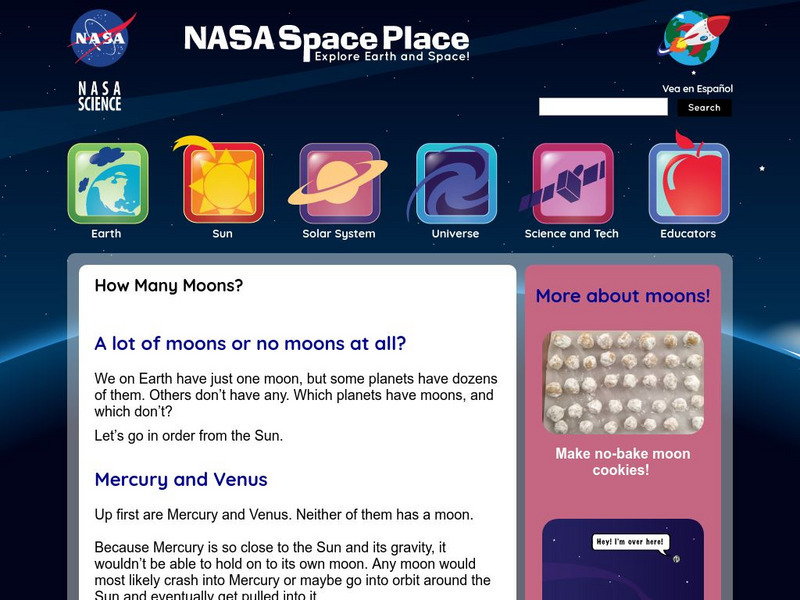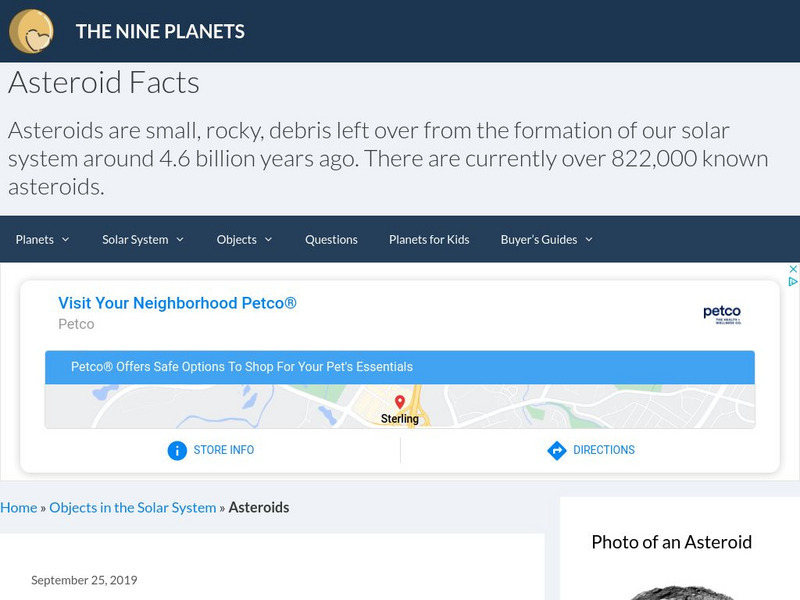Laboratory for Atmospheric and Space Physics
The Planets and Scale
Scholars gain an insight into the relative size of planets and distance between inner and outer planets with the help of informational text, a data table, and a series of four questions.
Mr. Hill's Science Website
Solar System Fact Sheet
Here is a fantastic, educational handout packed with information and facts not only about the planets in our solar system, but also regarding major moons and their surface features, dwarf planets, comets, and asteroids.
Curated OER
The Planet Saturn
In this worksheet on the planet Saturn, students look at a picture of the planet and read accompanying facts, along with a brief paragraph.
International Technology Education Association
Tidy Up Those Sloppy Force Fields!
It is just magnetic. This resource presents the concept of Earth's and another planet's magnetic field and how spacecrafts detect them. Learners study a problem using magnetometers and participate in three experiments to come up with a...
Laboratory for Atmospheric and Space Physics
Looking to the Future
New Horizons set forth on a mission to Pluto in 2006. Ten years later, the spacecraft is still on its way. Here, enthusiastic scholars predict what they will be like—likes, dislikes, hobbies, etc.—when New Horizons arrives at its...
International Technology Education Association
Pixel This!
Did the image I drew match the image you saw? By simulating a satellite and a ground station, teams of two transmit data in the form of pixels in order to recreate an image. They use four different levels of brightness, creating slightly...
Curated OER
Asteroids
In this worksheet on asteroids, students look at a picture asteroids and read accompanying facts, along with a brief paragraph.
Ducksters
Ducksters: Astronomy for Kids: The Planet Jupiter
Kids learn about the planet Jupiter of the Solar System including fun facts, mass, day, year, and distance from the Sun. Astronomy for kids and teachers.
Wikimedia
Wikipedia: Jupiter
Wikipedia, a publicly-maintained encyclopedia, provides information on the planet Jupiter, including physical characteristics, exploration, moons, comet impact, and more.
European Space Agency
European Space Agency: Esa Kids: Our Universe: Jupiter
A basic overview of the planet Jupiter. Links to information about the other planets and objects in our solar system are included.
Views of the Solar System
Views of the Solar System: Jupiter
Explore the planet Jupiter through this site that includes vivid multimedia resources. Learn Jupiter statistics and view numerous images.
Smithsonian Institution
National Air and Space Museum: Exploring the Planets: Our Solar System
Take a tour of our solar system and learn fascinating details and observations about the planets.
Cool Math
Coolmath: Science Monster: Jupiter
A cool fact sheet about Jupiter including a place for students to enter their weight on Earth to convert it to what it would be on Jupiter.
American Museum of Natural History
American Museum of Natural History: Jupiter O Logy Card
Flip this interactive card to start learning about Jupiter, the largest planet in our solar system. Answer multiple-choice and fact-or-fiction questions and review some fast facts about Jupiter.
NASA
Nasa Space Place: All About Jupiter
Discover interesting facts about Jupiter, the biggest planet in our solar system.
CK-12 Foundation
Ck 12: Earth Science: Planets in Our Solar System Study Guide
A quick overview of the eight planets in our solar system.
Cosmos 4 kids
Cosmos4 Kids: Solar System: Jupiter
Learn all the basic facts about the planet Jupiter. The brief, to the point text makes this site most suitable for younger researchers.
Nine Planets
The Nine Planets: Europa
View pictures and links to more information about Jupiter's moon Europa. Links are also provided throughout for additional information on related subjects.
Smithsonian Institution
National Air and Space Museum: Exploring the Planets: Ancient Times & the Greeks
In ancient times only five planets were known: Mercury, Venus, Mars, Jupiter, and Saturn. Learn about Greek astronomer Ptolemy's theory for the solar system that was to survive for fourteen centuries.
Science4Fun
Science4 Fun: Jupiter
Learn fun facts and details about the weather, composition, and discovery of Jupiter, the largest of all the planets.
Other
University of Leicester: The Solar System
Resource explores the solar system, with an in depth discussion of each of the planets and their properties.
Nine Planets
The Nine Planets: Asteroids
A plethora of information about Asteroids. This site provides lots of in-text links to information, pictures of asteroids, a table full of information about asteroids, as well as links to more information about asteroids.
NASA
Nasa: Image Science Center: Ask the Space Scientist
A NASA scientist, Dr. Sten Odenwald, answers many students' questions. Topics include planets, galaxies, black holes, the origin of the universe, and common misconceptions about space.
Other popular searches
- Making Planet Jupiter Models
- Planet Jupiter Models
- Planet Jupiter Picture
- Pictures of Planet Jupiter
- History of Planet Jupiter










